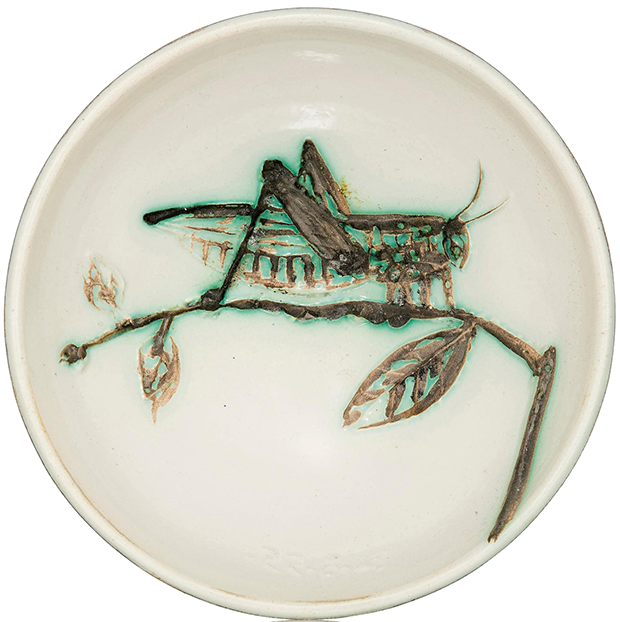It seems like yesterday their lives collided with mine, turned my world topsy turvy despite all my precautions. For nearly two months, whenever I left the house I looked around to ensure I was alone, that they weren’t lurking somewhere. But I opened my car door one sunny afternoon and one sat waiting for me in the driver’s seat, as though daring me to question his authority. How had I missed him? How had he gotten inside my car?
“Get out!” I roared, simultaneously angry, repulsed, and afraid. I grabbed the closest stick and went after him, chasing him out of my car, no doubt alarming the neighbors with my angry outburst. I stepped inside the vehicle, quickly closed and locked the door, sat there breathing heavily, glancing around to ensure I hadn’t missed another intruder.
I knew I couldn’t take much more, though I realized how irrational that sounded. Cicadas surface every seventeen years. Not every year or every ten years. After living among us for nearly two months, swarming through our lives, they were gone. But previous broods hadn’t been this bad. This time billions emerged from below ground where they’d sucked on tree roots for seventeen years. They dragged their sluggish bodies up through the dirt, tunneling to freedom when the ground temperature reached a magical 64 degrees. One million of them per acre I’d read, at least in Maryland.
How does one explain a phobia, an aversion, an obsession? Reason doesn’t hold sway, although it should.
“They don’t bite or sting,” friends chided me, laughing at my irrational behavior.
“Just think what miserable, short lives they have,” my husband reminded me, as though I should feel compassion.
“Just ignore them,” still another friend exhorted me, “flick them off you.” Hearing this last suggestion made me cringe, the mere thought of their bodies touching mine beyond repulsive.
The element of surprise proved unsettling. At the mall one day, one crawled out of my sleeve, his antennae visible first, then his head, inching his way into the light. How had he gotten inside my shirt between my car and the mall entrance? They weigh next to nothing and can hitch a ride without detection, some sticky substance on their legs helping them latch onto innocent bystanders.
I screamed, flicked him a good ten feet or so, indifferent to other store customers. He spun in a circle on the floor like a tumbler, twirling round and round on the slick surface, trapped on his back till he righted himself, his frenzied legs spinning in the air helplessly.
Tennis provided additional opportunities. Their unwieldy bodies often flipped them upside down, making them appear lifeless. Time and time again I placed the edge of my racket under a motionless one to bat it off the court and, in so doing, revived it. It took flight, leaped straight up at me like a helicopter lifting off, newly energized. I’d unwittingly acted as a catapult for its airborne journey.
So many cicadas erupted from the earth they left a pungent odor in their wake, like the cloud of dirt circling Charlie Brown’s friend Pig-Pen. How could they not? When thousands of living organisms die on your patio, deck, lawn, driveway, they leave behind a putrid smell. I experienced the effects of this first hand while sweeping my back deck early one morning at the height of the invasion. I was suddenly overcome with a coughing attack and had to stop sweeping, despite having no allergies. The feeling passed once I went back inside, but I blamed it on the cicadas. I blamed everything on the cicadas.
Even when I didn’t actually see the hordes of winged, two-inch bullet-shaped bodies filling the sky, ricocheting off tree branches, bushes, buildings, cars, they made their presence known. The noise they made measured between 80 and 100 decibels, the equivalent of standing next to a lawn mower, or having a jet fly just 1,000 feet overhead, according to articles I read, enough to damage human hearing in some cases. An eerie whirring sound permeated the air throughout the day, the males’ mating call. It sounded like a flying saucer landing nearby, aliens ready to invade.
These science fiction characteristics extended to their physical appearance, reminding me of a Vincent Price movie I watched late one night with my older brothers in the late 1950s: The Fly. Cicadas have short antennae, oversized red, bulging eyes that jut out from either side of their heads; menacing, multi-jointed, furry-looking legs; a double layer of semi-transparent wings; striped, orange wing veins on their underbelly; and “sucking” mouths.
When The Fly came out, one critic referred to it as “the most ludicrous, and certainly one of the most revolting science-horror films ever perpetrated.” I had to wonder if he would have found our recent cicada infestation so ludicrous, this onslaught of similarly otherworldly creatures.
Whenever I ventured outside, I tiptoed about as though moving through a minefield. I must have resembled a bobble-head doll, looking up, down, left, right, never knowing from which direction they might appear. I saw bodies strewn everywhere, even after sweeping most nights (never during daylight hours). Not sure which ones remained alive, which were dead, which had been snacked on by birds soon glutted from eating too many (a phenomenon scientists termed “predator saturation”). Predators don’t pose a serious threat to cicadas due to the cicadas’ irregular life cycles, spaced too far apart for predators to adapt.
The delicate cicada wings looked almost pretty when viewed in isolation. I could picture a little double-breasted cape the cicada wore to protect itself from the elements. But even if I attempted to make them into cartoonish à la Jiminy Cricket by adding a cane, top hat, spats, gloves, and tuxedo tails in my mental image, the comparison did nothing to dissipate my loathing. Besides, cicadas aren’t in the same family as crickets.
I heard gruesome stories about them. That they had sex till their organs fell off, that they sometimes continued with the sexual act afterwards, as if they still could, despite the unfortunate bodily subtractions. This conjured up additional sci-fi images for me. In fairness, that’s why they came: to procreate.
The specter of two of them locked together on my driveway, patio, or on a sidewalk, engaged in various stages of coitus has stayed with me, as well as the sight of them valiantly extricating themselves from their brittle exoskeletons. My gaze was drawn to both acts against my will.
I almost put my hand on a large grouping of cicadas one day. Out on a walk when they’d just climbed out of their subterranean crypt, reminding me of the ghouls roaming the countryside in The Night of the Living Dead, I started to lean against a tree for balance to remove a pebble from my shoe. As my outstretched palm inched towards the tree I realized — just in time — that the bumpy brown bark of the tree was not bark at all, had been overrun by hundreds of camouflaged cicadas and their exoskeletons, as though a giant had dipped the tree trunk into an enormous vat of squirming tentacles, beady red eyes, bodies, and crackly skeletons. I recoiled, withdrew my hand just in time.
Friends thought my comments had been made in jest when I confessed I’d have to relocate if the 17-year cycle happened every year, or if it lasted longer than two months.
There were stories on the news about people who ate cicadas during the infestation, and I shuddered at the thought; it made no sense. This struck me as beyond irrational, but then I don’t even eat sushi, so who was I to judge? Deep fry them, slather them in chocolate, tempt me with a million dollars, one would never go in my mouth, at least not voluntarily.
I’ve read Virginia Woolf’s story The Death of a Moth and Kafka’s The Metamorphosis, the latter about a protagonist who wakes up as a cockroach one unfortunate morning. I’m familiar with the symbolism contained in both stories. I wish I could say this past year’s cicada takeover symbolized the evanescence of life for me, or death’s inevitability, or man’s search for identity. or his sense of alienation, or other themes Woolf and Kafka touched on in their respective tales, but symbolism eludes me when I analyze my strong emotions. Sometimes a cicada is just a cicada.
Then again, maybe my feelings originated in my need for control. These cicadas represented my inability to control my environment during their time above ground. External factors over which I had little control took over my life just at the point when the uncontrollable event of the century — COVID-19 — had begun winding down.
Thankfully, the cicadas are gone now. Life is back to normal. I’m at peace for the next seventeen years… until it begins again.
See more at https://lindamurphymarshall.com/
- A Pandemic Postscript - March 7, 2022

